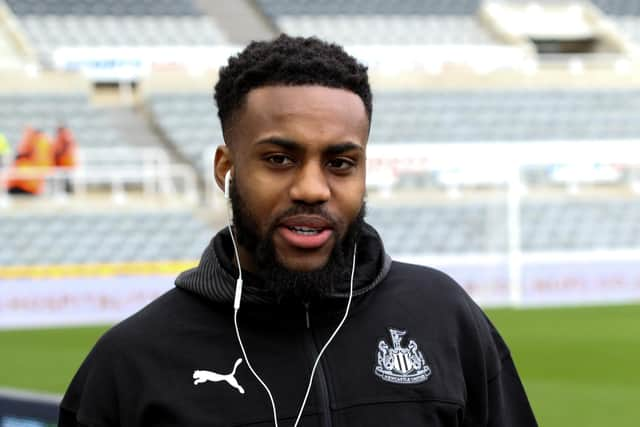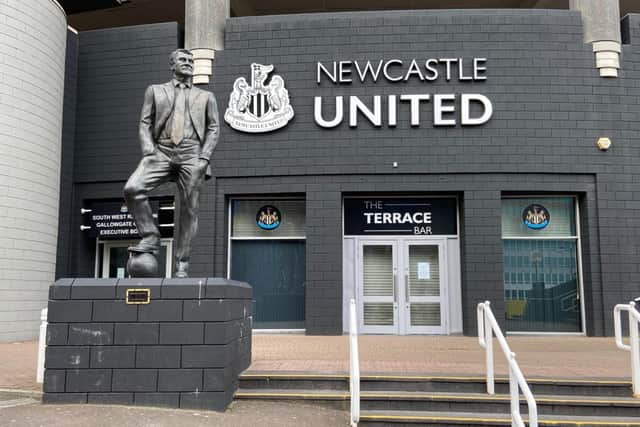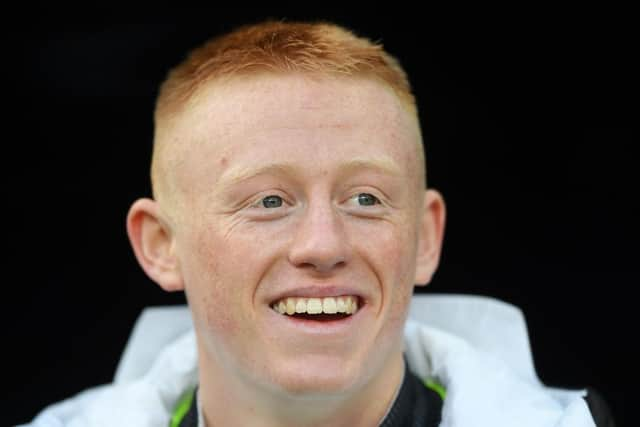This is why Newcastle United players have the law on their side ahead of the Premier League's return
and live on Freeview channel 276
That’s the view of an employment solicitor as the Premier League plans for a summer restart amid hundreds of daily deaths from the coronavirus pandemic.
United defender Danny Rose has already voiced his opposition to plans for a return to the field next month.
Advertisement
Hide AdAdvertisement
Hide Ad“Government is saying 'bring football back because it’s going to boost the nation's morale’,” said the 29-year-old, signed on loan from Tottenham Hotspur. "People's lives are at risk. Football shouldn't even be spoken about coming back until the numbers (of deaths and infections) have dropped massively. We'll see."


Rose, or any club employee, will have the right to refuse to return if they believe there is a “serious and imminent” threat to their health, according to Safwan Afridi from RadcliffesLeBrasseur LLP.
“The first thing to say is that if a player is being asked to come to training and effectively fulfil the duties in his contract and doesn’t do that, then effectively they’re in breach of that contract,” said Afridi.
“But it’s not that simple, and they will have protections if they reasonably believe that there’s a serious and imminent threat to their health, and one that they don’t believe can be reasonably controlled by their employer.
Advertisement
Hide AdAdvertisement
Hide Ad“They can refuse to attend work on these grounds and they will be protected from any detriment that they suffer, so if a club seeks to fine them or even dismiss them, they will be protected from that.


“What’s important is not whether the club or the Premier League, or the Football Association even, believes that they’ve done all they can to create a safe working environment, what will be judged is the mindset of the player and if the player believes there will be a serious and imminent threat they can legitimately refuse to attend work.
“I think any individual that’s employed, if they’re being asked to go to the workplace, be it as a player, coach, staff member or casual staff member, they’d be protected by Health and Safety legislation.”
The Government, which this week eased lockdown restrictions, is backing the Premier League as it seeks to find a safe way to conclude its season in the face of a potential £1billion liability.
Advertisement
Hide AdAdvertisement
Hide AdOliver Dowden, secretary of state for digital, culture, media and sport, said: “The Government is opening the door for competitive football to return safely in June. It’s now up to the football authorities to agree and finalise the detail of their plans, and there’s combined goodwill to achieve this for their fans, the football community and the nation as a whole.


'The Government, and our medical experts, will continue to offer guidance and support to the game.”
The Premier League and clubs must overcome a number of issues before football can be restarted, and protocols for testing and the first phase of training have been drawn up and put to managers and players.
“It’s a real minefield,” said Afridi. “You feel for the employers in some senses as they want to get back earning money and balance the books, and the Government have set down quite detailed guidance on how to make a workplace safe, but it’s all got to be tailored to the individual workplace.
Advertisement
Hide AdAdvertisement
Hide Ad“I had a message from somebody whose employer wants them to come back two days a week and they absolutely don’t want to. That trends just going to increase as time goes on.”
There are also concerns over players who have asthma, or are living with family members with underlying health issues.
“Lots of Premier League players have asthma,” said Afridi. “It becomes a bit more uncomfortable if you’re looking at their home life and they’re living with a spouse and children or elderly parents.
“They don’t want to come back and spread the virus. There are protections there as well. You then start looking at disability and the Equality Act.
Advertisement
Hide AdAdvertisement
Hide Ad“If you’re classed as vulnerable, or even extremely vulnerable, then you could argue you’re classed as disabled under the Equality Act, and then you’ve got much more protection from your employer in that sense.”
There are also a large number of Premier League players, among them United midfielder Matty Longstaff, who will be out of contract at the end of next month.
The Premier League, if it does restart this summer, will run into July or August, when they will be free agents.
“The players that are out of contract this summer, they’ll be out of contract on June 30,” said Afridi. “So, from July 1, they’re free agents. Their clubs can’t compel them to play, nor are they obliged to to play.
Advertisement
Hide AdAdvertisement
Hide Ad“It seems unlikely that football will resume before June 1, and therefore completion by June 30 is almost impossible at this stage. This is something that needs to be addressed, as you’re not going to have a transfer window in that time either.
“FIFA said that clubs and players can agree a short-term extension. Lots of contracts have a clause which allows either party to extend that contract unilaterally.
“Even if there isn’t, I think, quite amicably, a club and a player can agree to extend the contract until whenever they see fit or just do it on a monthly rolling basis. The club could incentivise the player by paying them slightly more.”
